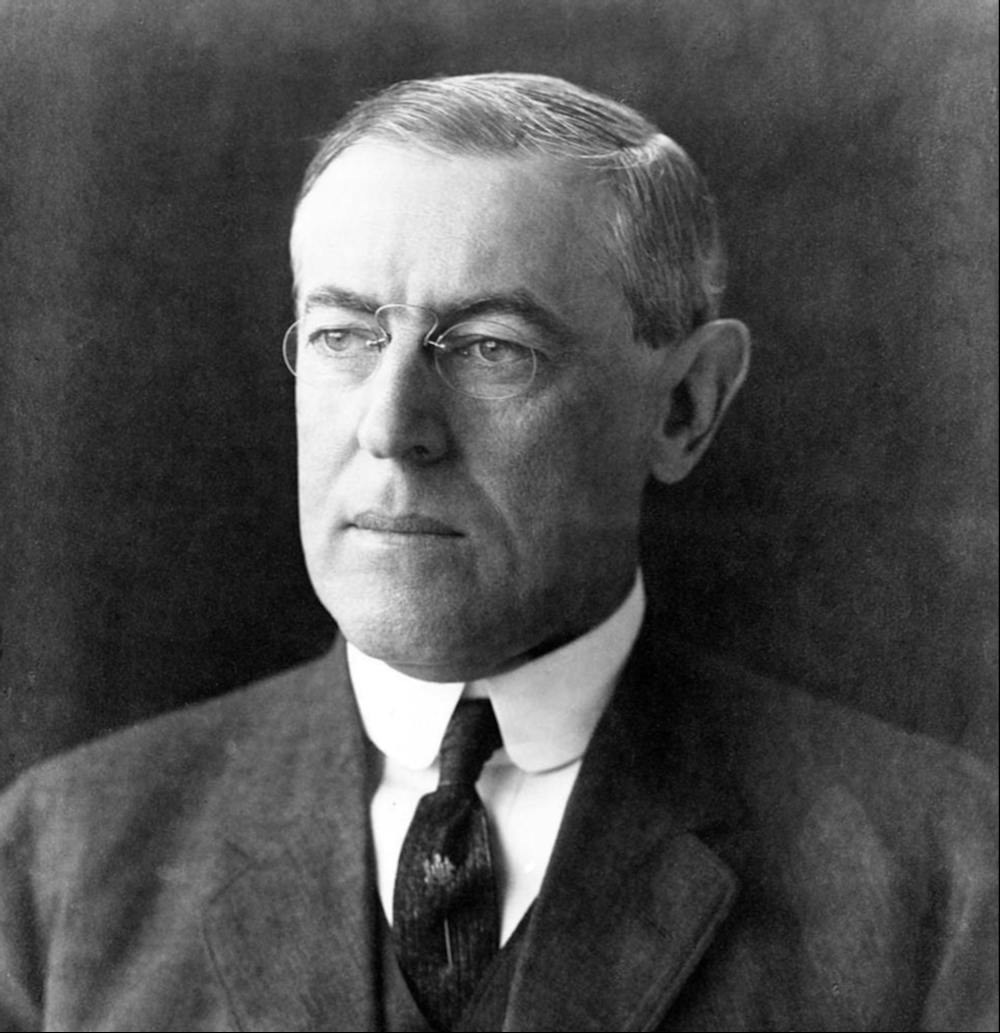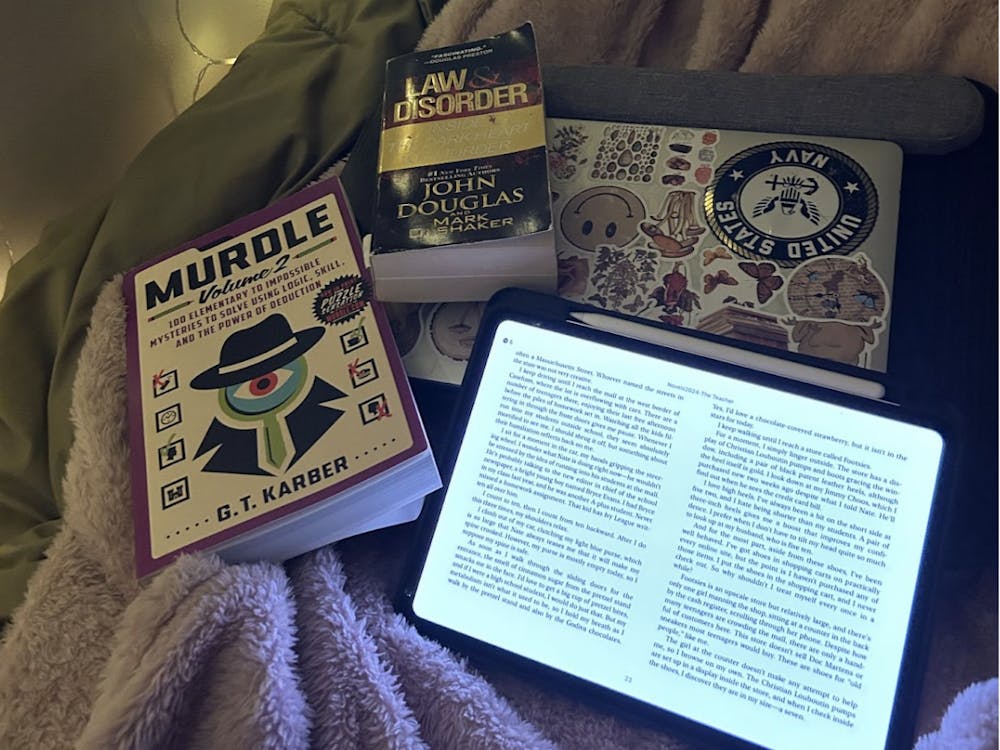The Johns Hopkins Name Review Board (NRB) made recommendations on the use of former U.S. President and Hopkins alum Woodrow Wilson’s name for an undergraduate research program and residence hall entryway on Oct. 24.
The NRB was established in 2021 following a report by the Johns Hopkins Committee to Establish Principles on Naming and is responsible for considering proposals for renaming or de-naming of university features. Any Hopkins student, faculty, staff, alumni, patient or community member is eligible to submit a proposal to the NRB, which is composed of over 50 representatives across the University and its alumni network.
The Board recommended that the Woodrow Wilson Undergraduate Research Fellowship, which provides funding for students to conduct independent research, be renamed as the University Undergraduate Research Fellowship, effective immediately. The NRB also recommended that AMR I’s Wilson House entrance retain its name but with added contextual information. Both recommendations were approved by the university’s Board of Trustees.
These decisions were reached after the NRB deliberated for a year, during which they reviewed archival materials related to Wilson. Wilson graduated from Hopkins in 1885 with a doctorate degree in history and political science and is the only Hopkins alumni to be elected as a U.S. President.
The NRB considered Wilson’s achievements as President, including implementing labor laws, granting women the right to vote and appointing the first Jewish justice to the U.S. Supreme Court. The Board also reflected on Wilson’s racist policies toward Black Americans, both as the President of the U.S. when he re-segregated federal workers in D.C. and as the president of Princeton University, where he discouraged Black applicants and penned racist writings.
Hopkins is not the first among its peer institutions to remove Wilson’s name from university features. In 2020, the Board of Trustees of Princeton University voted to remove his name from the School of Public and International Affairs, citing his racist policies and views.
Omotara Tiamiyu, a sophomore and a recipient of the fellowship, expressed her thoughts about the renaming in an interview with The News-Letter.
“I think it is long overdue to change the name of the fellowship, especially in regards to [Wilson’s] history of racist beliefs,” she said. “On the other hand, this name change can come off as kind of performative. This needs to lead to other examinations of the University's complicated history with racism.”
Similarly, Eli Lesher, a sophomore fellow majoring in Critical Diaspora Studies and Biophysics, also expressed how the renaming of the fellowship was something that many students who are part of the program have been pushing for.
“[The fellowship] is something that a lot of students have worked really hard to get. Having it named after someone with such a problematic legacy is not really what's in line with the values of people who have the fellowship,” they said.
The fellowship program was created in 1999 by Herbert Kessler, the former Dean of the School of Arts and Sciences, board of trustees member J. Barclay Knapp and Professor of Political Science Steven David, who was then the Associate Dean of Academic Affairs. David was the inaugural director of the fellowship program and served in that role for over 15 years.
In an interview with The News-Letter, David shared that he understood why the change was made and why students, especially students of color, would not want to be a part of a program celebrating Wilson, given his racist past.
“I have mixed feelings about it, but I understand why it was done. Wilson was a hard choice, because on the one hand, Wilson is a giant when thinking of principles like the spread of democracy, self-determination and the importance of international institutions,” he said. “But, he was also a racist and there is no shying away from that.”
David shared that he, Knapp and Kessler chose Wilson as the program’s namesake due to his connection to Hopkins, his prominence in international relations and his support for research, and they had not known of his racism at the time.
“I don’t think any of us were aware of the racism that was also part of his background, and that’s a failing, I’ll say for myself,” he said. “Perhaps, we should have been more aware and sensitive to that when the name came out.”
At the time the fellowship was created, David stated that he did not recall any opposition to the name on campus. Discussion of renaming the Woodrow Wilson Fellowship arose on campus in November of 2016, when Herbert Baxter Adams Professor of History Nathan Connolly submitted a motion to administrators for the fellowship to be renamed, highlighting Wilson’s racist legacy. The motion had the unanimous support of the Homewood Faculty Assembly, but Connolly did not hear back from administration.
In 2020, the Student Government Association voted unanimously in support of renaming the fellowship. Most recently this past spring, there was a push to rename the fellowship after Ethan Posner, an undergraduate Wilson fellow who passed away in March.
In an interview with The News-Letter, Connolly supported the decision to remove Wilson’s name from the fellowship but shared his disappointment with the eight-year difference that passed between his initial motion and the removal. He also reflected on his involvement in devising policies for the naming board and perspectives during that process that called for greater proactiveness by the University.
“There were some folks who believed that we should have a much more proactive approach, where instead of putting the burden on members of the University community to submit applications for reconsideration, the University should make this a rolling process that they’re doing all the time and re-evaluating in spite of what prompting and urging may bubble up from the grassroot,” he said. “I think it’s a lot to ask people to put their labor and effort into making the argument when it was the University’s prerogative.”
Vice Chair of the Board of Trustees and Chair of the NRB Sarah O'Hagan wrote about the motivations behind the Board’s recommendation in a message to the individuals who had requested the review. O'Hagan described that the retention of Wilson’s name in the AMR I entryway with added context creates an opportunity for Wilson’s connection to Hopkins to be recognized while also facilitating discourse on his complex legacy.
She shared that the decision to remove Wilson’s name from the fellowship but not the entryway was meant to render Hopkins as responsible for entangling Wilson’s complex legacy, rather than individual affiliates.
“Simultaneously removing the name from the fellowship places the responsibility for the contextualization of the university’s history and the full complexity of Wilson’s legacy on the institution rather than on individual students and alumni,” she wrote.
Both students and faculty have been critical of the NRB’s decision to remove Wilson’s name from one University feature, but not another.
Connolly explained his perspective that the decision to retain the Wilson name on the AMR I entryway may appease certain University stakeholders and was incompatible with the parallel denaming of the fellowship.
“I think that they split the difference on that: You take one name down and leave one name up, and then use the contextualization approach. I think it helps to put certain corners of the alumni network and university at ease to take that approach,” he said. “But, it’s also logically inconsistent. If he’s unsuitable in one arena, it strikes me as it’s likely he’s unsuitable in all arenas.”
He described the impact of Wilson’s policies and actions, including the mass demotions of thousands of Black individuals, the deaths of Haitian people under U.S. occupation and the validation of white violence, leading to an uptick of membership in the Ku Klux Klan.
“All of that should be considered too far from the University’s core values to be celebrated in any way, having a contextualization plaque or not,” he said.
Shirlene John contributed reporting to this article.





